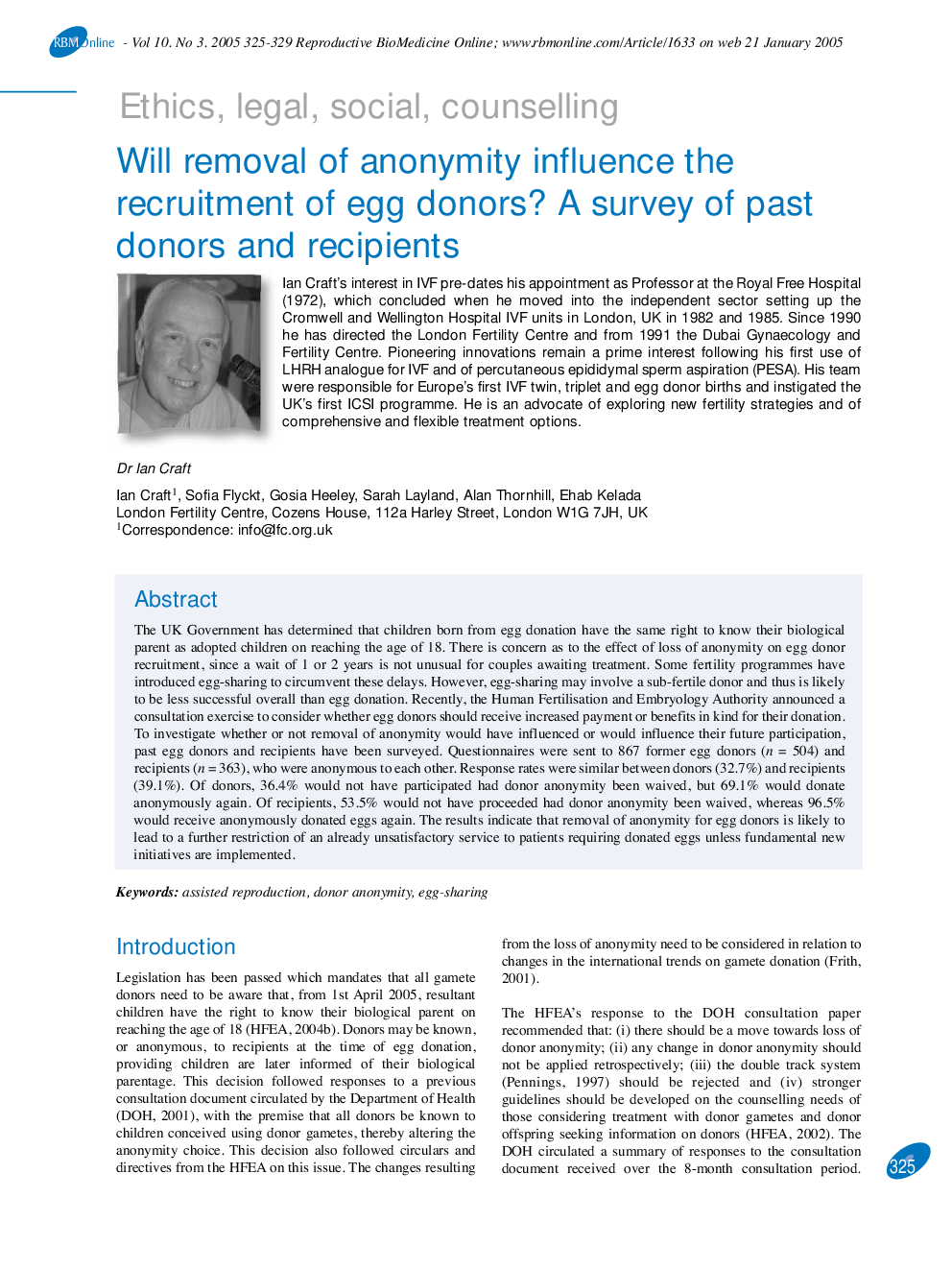| Article ID | Journal | Published Year | Pages | File Type |
|---|---|---|---|---|
| 9335368 | Reproductive BioMedicine Online | 2005 | 5 Pages |
Abstract
The UK Government has determined that children born from egg donation have the same right to know their biological parent as adopted children on reaching the age of 18. There is concern as to the effect of loss of anonymity on egg donor recruitment, since a wait of 1 or 2 years is not unusual for couples awaiting treatment. Some fertility programmes have introduced egg-sharing to circumvent these delays. However, egg-sharing may involve a sub-fertile donor and thus is likely to be less successful overall than egg donation. Recently, the Human Fertilisation and Embryology Authority announced a consultation exercise to consider whether egg donors should receive increased payment or benefits in kind for their donation. To investigate whether or not removal of anonymity would have influenced or would influence their future participation, past egg donors and recipients have been surveyed. Questionnaires were sent to 867 former egg donors (n = 504) and recipients (n = 363), who were anonymous to each other. Response rates were similar between donors (32.7%) and recipients (39.1%). Of donors, 36.4% would not have participated had donor anonymity been waived, but 69.1% would donate anonymously again. Of recipients, 53.5% would not have proceeded had donor anonymity been waived, whereas 96.5% would receive anonymously donated eggs again. The results indicate that removal of anonymity for egg donors is likely to lead to a further restriction of an already unsatisfactory service to patients requiring donated eggs unless fundamental new initiatives are implemented.
Related Topics
Health Sciences
Medicine and Dentistry
Obstetrics, Gynecology and Women's Health
Authors
Ian Craft, Sofia Flyckt, Gosia Heeley, Sarah Layland, Alan Thornhill, Ehab Kelada,
